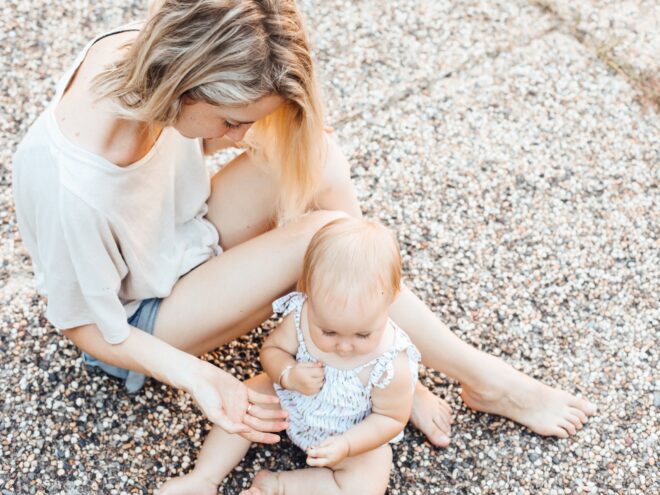Parenting • 06/22/2022
Understanding Your Child’s Mental Health: 10 Signs of Trouble

Revivalist is a reader-supported endeavor and our posts may contain affiliate links. When you buy through links on our site, we may earn an affiliate commission.
You’d probably recognize the signs if something were wrong with your child’s physical health. Their mental well-being is no less vital — would you realize that something was wrong? Understanding your child’s mental health means feeling confident that your answer is yes.
Your children might lack the vocabulary to tell you what’s happening inside their heads. That’s why you should develop a deeper understanding of your child’s mental health and learn to spot these ten common signs that something is wrong.
1. Changes in Academic Performance
Pressuring your child to get straight A’s can produce anxiety. However, you should be concerned if your little one goes from bringing home a mix of A’s and B’s to C’s and D’s.
Nearly every mental disorder causes significant difficulty with concentration and focus. Those who are anxious might not be able to pull themselves out of a negative thought cycle to tackle the work at hand. Those with depression often lack the energy to carry out daily tasks like homework.
2. Withdrawing From Others
Does your once bubbly 12-year-old now retreat to their bedroom immediately after school and close the door? Have they stopped connecting with friends?
Parents might overlook signs of withdrawal, especially if they feel overworked, content to know their child is safe at home. However, loneliness can kill, and children and teens lack the impulse control of adults — who sometimes take their lives in despair. Please pay attention.
3. Outbursts or Extreme Irritability
Some children are louder in letting you know they need help. Please understand that misbehavior doesn’t necessarily mean your child is rebellious. The reason psychologists recommend against diagnosing personality disorders until age 18 is because they’re still developing. Most of your child’s behavior is a reaction to external circumstances or an internal stew of neurotransmitters and hormones.
However, outbursts and extreme irritability say loud and clear: something is wrong. While you should enforce fair limits and logical consequences, you should also get your child to a reputable mental health professional for evaluation.
4. Reckless Behavior
Sometimes, children do crazy things because they simply don’t recognize the risks. Other times, reckless behavior signals the need for an intervention, particularly among teens.
Teenagers who engage in behaviors like reckless driving or drug and alcohol abuse pose significant dangers to themselves and others. They can also stunt their mental development, leading to lifelong trouble. Please enforce rules and seek outside help.
5. Drastic Changes in Mood or Personality
Children are still learning to be human, and your little one may go through various phases. One day they want to be an architect when they grow up. The next, a ballerina.
The quest for identity becomes more apparent during adolescence. It’s not unusual for teenagers to adopt a new style of dress or experiment with veganism, even if your family eats meat.
However, pay attention if your normally perky, outgoing teenager becomes sullen. Likewise, check in with your child if they suddenly morph from a quiet, shy bookworm into someone sneaking out with friends every night after dark.
6. Shifts in Eating Patterns
People with depression and anxiety may eat too much to self-medicate — or stop eating at all. Your child’s appetite will naturally fluctuate as they go through growth spurts.
However, one out of every ten teenage girls has an eating disorder. The number continues climbing among adolescent males, some as young as ten. These dysfunctional patterns can kill or lead to ongoing difficulties in adulthood. Early intervention is best.
7. Difficulty Sleeping
You should expect some sleep changes as your child develops. For example, toddlers need about 11 to 14 hours of sleep per day, and teens require nine to ten. However, don’t be alarmed if your 15-year-old struggles a bit in the morning. Many adolescents naturally stay up and rise later as their circadian rhythms change and settle into adult patterns.
However, show concern if your child doesn’t seem to sleep night after night. Another sign of trouble is excessive daytime napping. They may have an underlying physical disorder such as narcolepsy or dealing with a mental health concern.
8. Frequent Health Issues
In “The Body Keeps the Score,” Bessel van der Kolk explores the impact of psychological trauma on the body. The bottom line? Your child might not verbalize abuse or bullying, but the scars show through their physical health.
Please understand that the dynamic works both ways. Sometimes, physical disorders manifest as behavioral trouble — a frequent example is a child acting out in class simply because they can’t follow what’s happening on the whiteboard without glasses.
However, health complaints warrant a doctor’s visit. If your family struggles to afford coverage, your child might qualify under the Children’s Health Insurance Program (CHIP). You can find out by filling out the application on the healthcare marketplace.
9. Avoiding Certain Activities
Pay heed if your child once lived for the soccer field but now can’t be bothered to pick up a cleat. They might have lost interest in the sport. However, mental health troubles could also play a role.
Notice how your child behaves around certain people, too. Few like to acknowledge the reality of sexual abuse, but one in nine girls and one in 53 boys experience an assault before turning 18. Ignoring the issue only further traumatizes a child who probably already experiences deep shame, even though the abuse wasn’t their fault.
10. Talk of Self-Harm or Suicide
Please take all threats of self-harm or suicide seriously — even if your child has made similar gestures in the past. If they happen more than once, they’re a sign that healing hasn’t yet occurred.
Unfortunately, the pandemic caused a surge in suicides among people of nearly all ages, including teens. Females again bear the brunt, with a 50% increase compared to 4% in adolescent boys.
Please get your child to a qualified mental health practitioner without delay. You might wish to rethink your behaviors, too. Most suicide attempts among adolescents don’t succeed unless they use a gun. You have the right to own a weapon — but is it more important to keep one at home than to protect your teen’s life?
You may never know if your actions made a critical difference. However, you don’t want to look back in regret, wondering if you could have prevented a tragedy had you only listened.
Understanding Your Child’s Mental Health
Children can develop mental health woes that are every bit as severe as physical illnesses. However, young people don’t always have the vocabulary to ask for the help they need. It’s up to parents and caregivers to recognize the signs of trouble.
You don’t have to earn a psychology degree to understand your child’s mental health. Pay attention to the above ten signs to know when you should intervene.
Subscribe to Our Weekly Newsletter
We would love to connect deeper with you!


